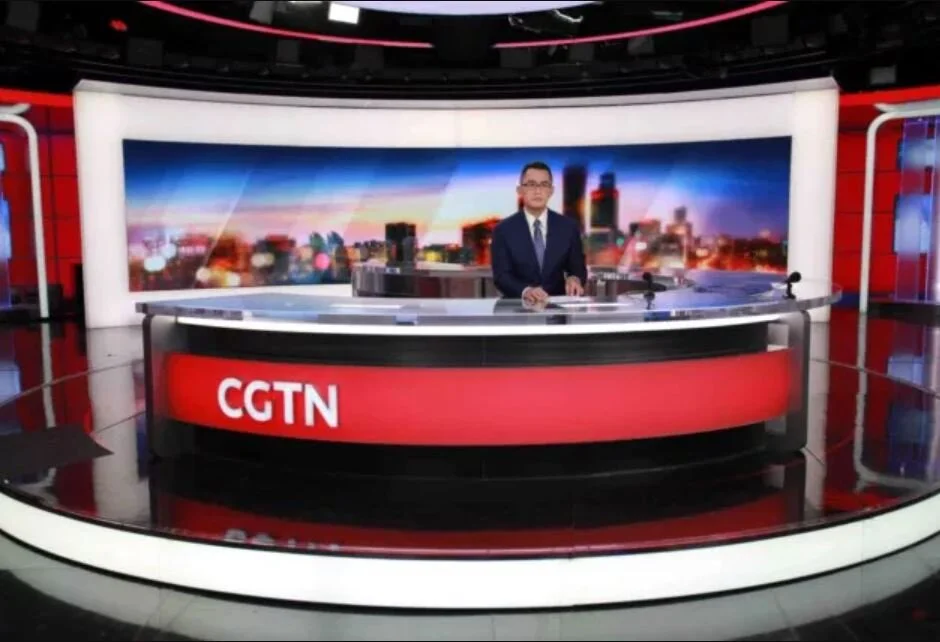The Ofcom-CGTN Debacle: A Proxy Conflict
On February 4th, Ofcom, the UK’s communications regulator, announced its decision to revoke the broadcasting licence of CGTN, an international English-language news channel based in China. The regulator qualified the drastic decision by citing its findings that while nominally run by Star China Media Limited, Ofcom’s content is ultimately curated by the CCP.
Such interference by political bodies in UK is prohibited. Yet the context of the decision suggests that Ofcom’s statement only tells part of the story. Ofcom’s ruling did not take place in a political vacuum. Indeed, it is seen by many as the UK’s latest move in its game of diplomatic “Swing ball” with Xi Jinping’s government. The highlights of the U.K.’s strategy include a visa scheme for Hong Kongers holding British National Overseas status, the expulsion of 3 undercover Chinese spies, and reneging on agreements with Huawei.
Ofcom vows, “to ensure that interventions are evidence-based, proportionate, consistent, accountable and transparent in both deliberation and outcome.” In light of escalating hostilities, Ofcom’s reasoning is definitely transparent, but in the other sense of the term. What of the consistency of the intervention? Ofcom ruled in 2011 that Press TV, an Iranian broadcaster, had breached UK broadcasting rules for airing an interview of a journalist who answered questions under duress. After concluding that the network’s editorial control lay in the hands of the government in Tehran, Ofcom took it Press TV off the air in 2012. Still, Ofcom’s sanctioning of two of the UK’s adversaries’ state broadcasters hardly proves impartiality.
On the contrary, in 2014 The Times reported that NHK, Japan’s public broadcaster, systematically expunged references to the Rape of Nanking, Japan’s use of sex slaves during the Second World War, and territorial disputes with China from its international broadcasts. Ofcom did not bat an eyelid, indicating that the regulator holds state enemies to higher standards than its allies.
Chinese officials have retaliated with a two-pronged attack, lashing out at both Ofcom and the BBC. They argue that Ofcom’s decision is just another instance of Western hypocrisy, in that we condemn the Chinese government for silencing domestic critics, whilst simultaneously undercutting freedom of expression at home by banning CGTN. According to these officials, insofar as CGTN disseminates dishonest propaganda, the BBC is equally guilty of spreading misinformation in its reporting about Xinjiang. Unfortunately for Chinese officials, however, fact checkers need information disproving that Uighur Muslims face human rights abuses, not mere denials. There is nonetheless a point to be made that private-run media is surely just as biased as state-run media. The Sun and The Times arguably voice Rupert Murdoch’s business interests and political views as much as CGTN does the CCP’s preferred interpretation of events.
CGTN can only have had a small viewership, which likely took its coverage with more than a pinch of salt. Audiences simply aren’t that naïve, approaching such broadcasts with managed expectations – just as you’d expect better food from a Michelin star restaurant than your local McDonald’s, you’d expect more balanced coverage from the BBC than you would CGTN. If anything, CGTN’s broadcasts can only have damaged the CCP’s image by exposing a credibility gap between the official narrative and narratives emerging from the coverage of the same events by other outlets. In other words, CGTN is a liability, not an asset for Chinese soft power. CGTN was however an asset for those in the West interested in the changing levels of tolerance for dissent in China, and the kinds of facts that, if exposed, would cause the CCP to lose face. Furthermore, CGTN’s reporting, as well as that of China Daily, Xinhua news, and the tweets of Chinese government officials, are still readily available through a few clicks of a mouse.
Ofcom’s decision was not an attempt at shielding viewers from bias at the expense of free speech, but part of a wider diplomatic offensive, targeting both Chinese and U.S. audiences. Indeed, the U.S. administration heard wedding bells and smelt betrayal when the EU signed a lucrative trade deal with China in January, and the UK government sees this widening gulf as an opportunity to be exploited in the post-Brexit world.
In spite of the benefits accrued from this highly realist decision, I would argue that since CGTN never posed the threat of brainwashing UK audiences, the UK can afford to take the moral high ground in this petty tit-for-tat. This is especially true when considering that reciprocal action could actually endanger our supply of unofficial information about China. BBC World News has already been banned from airing in China. It is worth thinking about the possibility that the expulsion of UK journalists from China could follow. Only then will China be right in claiming that our media’s stories on China are groundless, as we won’t have any in situ knowledge to base them on.



